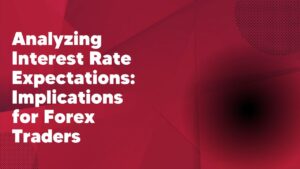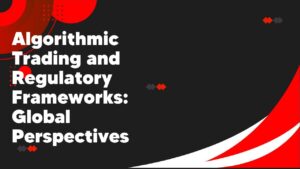The foreign exchange market, or Forex, is the largest and most liquid financial market in the world. Traders and investors from around the globe participate, seeking to profit from fluctuations in currency exchange rates. One popular approach in Forex trading is arbitrage, which involves exploiting price imbalances in different markets to make a risk-free profit. In recent years, technological advancements and increased market integration have made arbitrage strategies more accessible to individual traders. This paper examines the opportunities and limitations of using arbitrage strategies in Forex. It explores the various types of arbitrage, including spot, forward, and triangular arbitrage, and discusses the factors that affect their profitability. Furthermore, it highlights the challenges and risks associated with implementing these strategies, such as transaction costs, execution speed, and regulatory constraints. By gaining a comprehensive understanding of arbitrage opportunities and limitations, traders can make more informed decisions and optimize their trading strategies in the Forex market.
Understanding Forex arbitrage strategies
Forex arbitrage strategies involve taking advantage of price discrepancies in different currency pairs across different markets. By simultaneously buying and selling the same currency pair in different markets, traders can profit from the price differences. There are two main types of arbitrage strategies: spatial and temporal. Spatial arbitrage involves taking advantage of price discrepancies across different markets at the same time. For example, if the EUR/USD currency pair is trading at 1.2000 in one market and 1.1990 in another, a trader can buy at the lower price and sell at the higher price, making a profit. Temporal arbitrage, on the other hand, involves taking advantage of price discrepancies in the same market but at different times. Traders can exploit price movements that occur due to news releases, economic events, or market inefficiencies. However, it is important to note that forex arbitrage strategies require fast execution and access to multiple markets to make a profit, as price differences are often small and short-lived. Additionally, arbitrage opportunities are becoming increasingly rare, as technology and market efficiency have reduced the chances of significant price discrepancies. Therefore, traders need to be knowledgeable, well-equipped, and constantly monitoring the markets to successfully execute forex arbitrage strategies.
Profit opportunities in Forex arbitrage
Forex arbitrage is a trading strategy that allows traders to exploit price discrepancies in different currency markets to generate profits. This strategy involves buying a currency at a lower price in one market and selling it at a higher price in another market simultaneously. The goal of Forex arbitrage is to take advantage of temporary imbalances in exchange rates between different currency pairs, which can occur due to factors such as market inefficiencies or delays in information dissemination. Traders who engage in Forex arbitrage often use automated trading systems or high-frequency trading algorithms to identify and execute profitable trades in a matter of milliseconds. While Forex arbitrage can be highly profitable, it is important to note that it requires significant expertise and access to advanced technology to execute trades with low latency. Moreover, as markets become more efficient and technology evolves, profitable arbitrage opportunities might become scarce. Therefore, it is crucial for traders to continually monitor market conditions and adapt their strategies accordingly to stay ahead in the competitive Forex industry.
Limitations of Forex arbitrage techniques
Forex arbitrage techniques are often considered a reliable strategy for making profits in the foreign exchange market. However, it is crucial to acknowledge their limitations. Firstly, arbitrage opportunities in the Forex market are relatively rare and usually short-lived. This means that traders need to be constantly vigilant and act swiftly to capitalize on these opportunities. Secondly, executing a successful arbitrage trade requires a high level of technical knowledge and expertise. Traders need to possess the skills to identify price discrepancies across different markets and execute trades with precision. Moreover, Forex arbitrage is heavily reliant on technology and low-latency trading platforms. This means that traders need access to advanced technology, such as high-frequency trading systems, to take advantage of price differences before they disappear. Lastly, arbitrage techniques are subject to transaction costs, such as brokerage fees and slippage. These costs can significantly impact the profitability of arbitrage trades, especially when the potential price differences are small. In conclusion, while Forex arbitrage techniques have the potential to generate profits, traders need to be aware of the limitations involved. Being prepared, technologically equipped, and understanding the risks involved can help traders navigate the challenges of Forex arbitrage successfully.
Effective arbitrage strategies in Forex
Arbitrage is a popular trading strategy in the Forex market that exploits price discrepancies between different currency pairs or exchanges to generate profits. One effective arbitrage strategy is the triangular arbitrage, which involves taking advantage of inconsistencies in cross exchange rates. Traders can execute this strategy by converting one currency into another through a series of trades, ultimately ending up with the initial currency but with a higher value. Another successful approach is statistical arbitrage, which uses mathematical models to identify mispriced currency pairs based on historical data analysis. Traders monitor various indicators, such as moving averages or correlation coefficients, to identify opportunities for profitable trades. Additionally, latency arbitrage can be employed by utilizing high-speed trading platforms to take advantage of price lag between different markets. This strategy allows traders to execute trades before others can react, profiting from price discrepancies that only exist for a short period. Lastly, traders can also use risk arbitrage in Forex by taking positions in related currency pairs to reduce or hedge their exposure to certain risks. This strategy involves offsetting potential losses in one position with gains in another position, providing a level of protection against adverse market movements. By implementing these effective arbitrage strategies, Forex traders can maximize their profit potentials and capitalize on market inefficiencies.
Risks involved in Forex arbitrage
Forex arbitrage is a trading strategy that aims to profit from the price discrepancies of currency pairs across different markets. However, like any other trading strategy, there are risks involved in Forex arbitrage that traders must be aware of. Firstly, the speed of execution is crucial in arbitrage trading, as price discrepancies can occur and disappear within seconds. Traders must have access to fast and reliable trading platforms that can execute trades swiftly to take advantage of these opportunities. Secondly, there is the risk of slippage, where the actual execution price may differ from the expected price due to market volatility or liquidity issues. This can lead to potential losses or reduced profits. Thirdly, there is a risk of regulatory restrictions, as different jurisdictions have varying rules and regulations regarding arbitrage trading. Traders must ensure they are compliant with the relevant regulatory bodies to avoid any legal repercussions. Additionally, there is the risk of technological failures or connectivity issues, which can disrupt the arbitrage strategy and result in potential losses. Lastly, market conditions and economic factors can also impact the profitability of Forex arbitrage. Sudden market movements, geopolitical events, or economic news can create price volatility and increase the risks associated with arbitrage trading. Therefore, traders must constantly monitor the market and adapt their strategies accordingly to minimize potential risks.
Finding arbitrage opportunities in Forex market
Arbitrage opportunities in the Forex market can be a lucrative strategy for traders to capitalize on price discrepancies between currency pairs. By taking advantage of these discrepancies, traders can aim to make risk-free profits. Finding arbitrage opportunities requires meticulous analysis and monitoring of currency pairs across multiple exchanges or platforms. One common type of arbitrage in the Forex market is known as triangular arbitrage, where traders exploit differences in exchange rates between three different currency pairs. For example, if the exchange rate between USD/EUR and EUR/GBP is such that USD/GBP should be a certain rate, any deviation from this expected rate can be exploited through triangular arbitrage. However, it is important to note that arbitrage opportunities can be short-lived and may disappear quickly as market participants react and correct the price inconsistencies. Traders need to act swiftly and employ advanced trading technologies and tools to execute trades seamlessly and maximize their profits. Overall, finding and successfully capitalizing on arbitrage opportunities in the Forex market requires a deep understanding of exchange rates, timing, and access to reliable data sources.
Maximizing profits with Forex arbitrage
Forex arbitrage is a strategy that traders use to maximize their profits by taking advantage of price discrepancies in the currency markets. By simultaneously buying and selling different currency pairs, traders can exploit variations in exchange rates to make risk-free profits. The key to successful arbitrage lies in the speed of execution and access to real-time data. Traders need to have sophisticated trading platforms and reliable data feeds to identify and act upon arbitrage opportunities quickly. Additionally, this strategy requires significant capital and a deep understanding of the Forex market. Traders must carefully analyze multiple currency pairs and execute trades swiftly to lock in profits. While Forex arbitrage can be highly profitable, it is not without risks. Market volatility, execution delays, and slippage can lead to losses instead of gains. Therefore, traders must continuously monitor market conditions and adapt their strategies accordingly. Overall, Forex arbitrage can provide substantial financial gains for skilled and knowledgeable traders who have the resources and expertise to identify and exploit price discrepancies effectively.
Overcoming challenges in Forex arbitrage
Forex arbitrage, while lucrative, comes with its fair share of challenges. One significant obstacle is the technology gap. As trading strategies become increasingly sophisticated, the need for advanced technology and fast execution speeds has become paramount. Traders often face the challenge of finding the right tools and technologies to effectively execute arbitrage opportunities. Additionally, regulatory challenges can pose obstacles in the pursuit of forex arbitrage profits. Different countries have varying regulations, and navigating these legal frameworks can be complex and time-consuming. Traders must stay updated on the latest regulatory changes to ensure compliance. Another challenge is market volatility. Forex markets can experience rapid price fluctuations, which can quickly erode potential arbitrage profits. Traders must be vigilant and act swiftly to exploit arbitrage opportunities before they disappear. Additionally, liquidity constraints in certain currency pairs can limit traders’ ability to execute trades at favorable prices. Lastly, the risk management aspect of forex arbitrage cannot be underestimated. Traders must carefully manage their exposure and implement effective risk management strategies to protect against potential losses. Despite these challenges, successful forex arbitrage traders can reap significant profits by understanding and overcoming these obstacles. With the right technology, knowledge of regulations, and risk management skills, traders can navigate the complexities of forex arbitrage and capitalize on profitable opportunities.
Conclusion
In conclusion, arbitrage strategies in forex provide opportunities for traders to exploit price discrepancies in the currency market. By taking advantage of these price differences, traders can potentially generate profits with low risk. However, there are limitations to arbitrage strategies, such as the need for high-speed trading technology and access to multiple markets. Additionally, arbitrage opportunities may be short-lived and can quickly vanish due to market efficiency and the actions of other traders. It is important for traders to carefully analyze the costs involved in executing arbitrage trades, including transaction costs and any potential risks. Ultimately, while arbitrage strategies can be profitable, they require careful planning, analysis, and execution to be successful in the forex market.
1. What is arbitrage in forex trading?
Arbitrage in forex trading refers to the practice of taking advantage of price differences in different forex markets. Traders buy a currency at a lower price in one market and sell it at a higher price in another market to make a profit.
2. How does arbitrage work in forex?
Arbitrage in forex works by exploiting the variations in currency prices across different markets. Traders monitor exchange rates and execute trades simultaneously to capitalize on the price differential. This strategy aims to ensure risk-free profits.
3. What are the opportunities of arbitrage in forex?
The opportunities for arbitrage in forex arise due to inefficiencies in the market and discrepancies in exchange rates among different financial institutions or Forex brokers. Traders can leverage these opportunities to generate profits.
4. Are there any limitations to arbitrage in forex?
Yes, there are certain limitations to arbitrage in forex. These include transaction costs, execution speed, regulatory restrictions, and market liquidity. Traders must consider these factors before implementing arbitrage strategies.
5. Is arbitrage legal in forex trading?
Arbitrage itself is a legal trading strategy. However, the legality of arbitrage in forex trading may vary depending on the regulatory framework in different countries. Traders should ensure compliance with local laws and regulations.
6. What are the risks associated with forex arbitrage?
The risks associated with forex arbitrage include execution risk, technological failures, regulatory risks, market volatility, and liquidity risks. Traders should carefully manage these risks to avoid potential losses.


